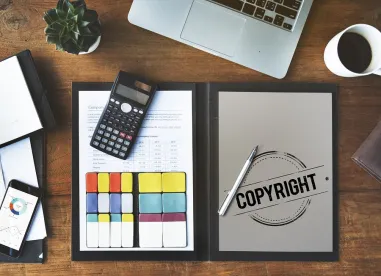The Supreme Court has spoken, and it’s official: Copyright infringement claims can only be brought after the copyright in question has been registered in the U.S. Copyright Office.
Under federal law, copyright infringement claims can only be brought in the U.S. district courts, and only once “registration of the copyright claim has been made.”
The irksome question has, up until now, been when has registration been made? The date the completed application for registration is filed in the Copyright Office or the date the Certificate of Registration actually issues?
As Shakespeare so eloquently said, “[A]ye, there’s the rub.” Compounding the confusion, the effectivedate of the registration is retroactive to the date on which the complete application for registration is received by the Copyright Office, not the date the Certificate of Registration issues. To add to this witches’ brew, if the application is refused by the Copyright Office the copyright claimant can then sue on the refused application.
The U.S. courts of appeal and their constituent district courts have long been split on whether filing the application is sufficient to enable the plaintiff to bring a copyright infringement action or if an actual registration is required:
| Court of Appeals | District Courts by State | Position |
|---|---|---|
| First Circuit | MA, ME, NH, RI, PR | Conflicting case law |
| Second Circuit | CT, NY, VT | Conflicting case law |
| Fifth Circuit | LA, MS, TX | Application |
| Seventh Circuit | IL, IN, WI | Conflicting case law |
| Eighth Circuit | AR, IA, MN, MO, NE, ND, SD | Application |
| Ninth Circuit | AK, AZ, CA, GU, HI, ID, MT, NV, NM, OR, WA | Application |
| Tenth Circuit | CO, KS, NM, OK, UT, WY | Registration |
| Eleventh Circuit | AL, FL, GA | Registration |
The Supreme Court, in Fourth Estate Public Benefit Corp. v. Wall-Street.com, LLC,[1] recently resolved the issue, holding that no legal action for copyright infringement may be instituted by a copyright claimant until the copyright in the work alleged to be infringed has actually been registered with the U.S. Copyright Office.
Fourth Estate Public Benefit Corp., an online news journalism organization, filed a copyright infringement lawsuit against Wall-Street.com LLC, a news website and former client of Fourth Estate. After it canceled its account, Wall-Street.com continued to use some of the articles it had previously licensed from Fourth Estate. Fourth Estate filed applications in the U.S. Copyright Office to register the copyrights in those articles, and filed suit against Wall-Street.com for copyright infringement in the Southern District of Florida. The complaint was dismissed, without prejudice, on the grounds that Fourth Estate had failed to obtain registration certificates before filing suit.
Fourth Estate appealed the dismissal to the Eleventh Circuit Court of Appeals, which affirmed the lower court’s decision. Fourth Estate then turned to the Supreme Court.
Justice Ginsburg, writing for a unanimous Court and, after a thorough discussion of the relevant provisions of the Copyright Act, resolved the circuit splits, decisively interpreting Section 411(a) of the Copyright Act to require registration of the copyright in issue prior to the institution of any litigation for copyright infringement.
What does that mean in the real world?
Most business owners and individuals are unfamiliar with the Copyright Act and its pre-suit filing requirements, and only become aware when they find their work is being infringed and seek legal advice. Their dismay at being unable to immediately file suit is understandable, more so considering that the normal process, from filing through registration, can take months, which gives the infringer that much more time to infringe.[2]
As they say, the best defense is a good offense.
While copyright rights in a work begin on its creation and existence in tangible form, they are not enforceable until the claim of ownership is registered. Any business, large or small, whose financial well-being relies on its copyrights — software, graphics, publishing, photography, technology — would be well advised to institute a process to file an application to register each new copyright as it is created. The cost of doing so is minimal compared to the cost of waiting until there is an infringement. In addition to being able to immediately file suit, pre-infringement registration brings additional benefits, including the option of statutory damages and qualification for attorneys’ fees.
-----
[1] 586 U.S. ___, 139 S. Ct. 881, 203 L. Ed. 2d 147 (2019)
[2] Although the copyright owner can presently request an expedited registration of its copyright(s), the process is far more expensive than the normal filing process.




 />i
/>i

